Tourism Disrupts Turtle Nesting in Ostional, Costa Rica
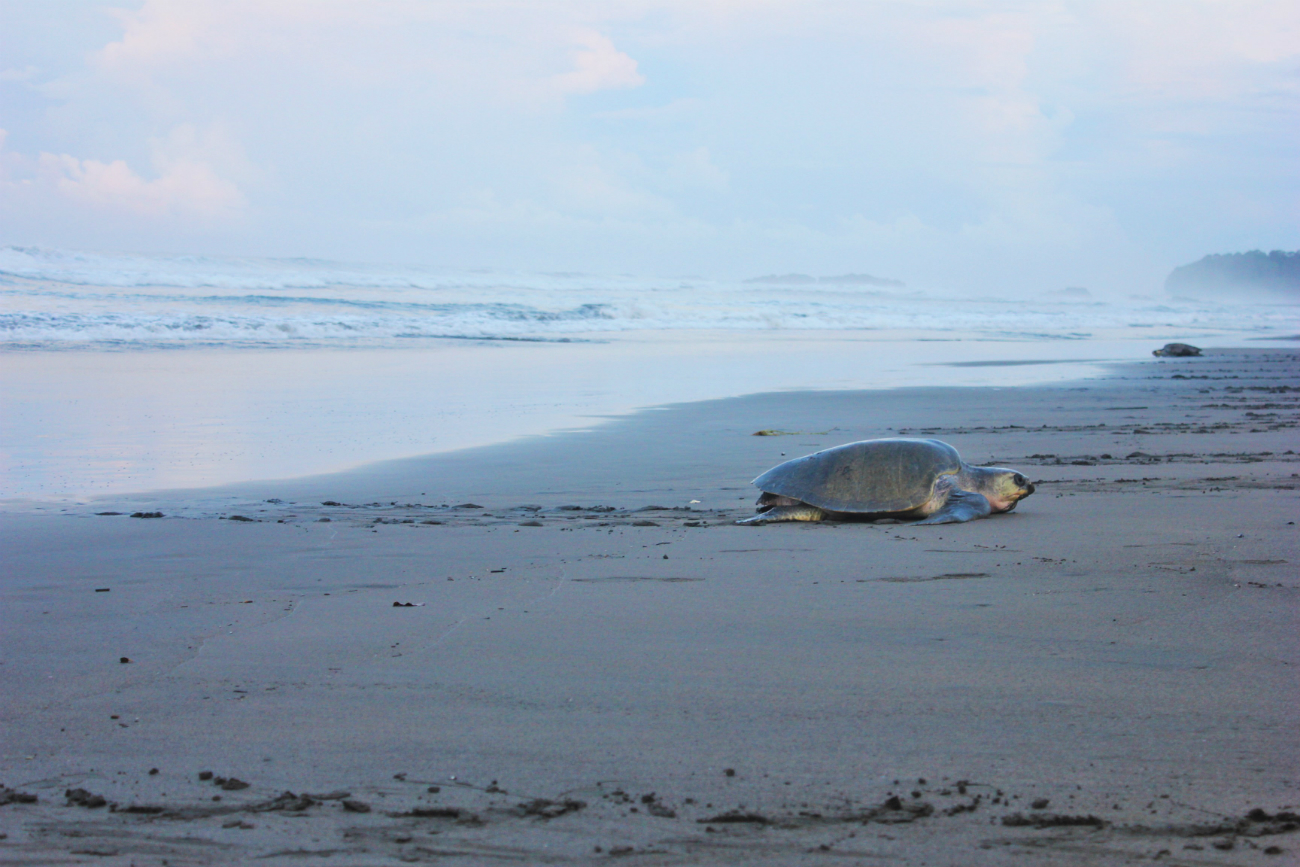
A year ago, Luke and I had an incredible experience witnessing the turtle arribada in the small Costa Rican beach town of Ostional. During an arribada, thousands of turtles come onto the beach to lay their eggs in the sand.
We were surprised not only by how breathtaking it is to see these creatures come out from the sea, but also how deserted the small town of Ostional was when we were there. One year later, I was horrified to read that swathes of tourists had prevented the turtles from nesting on the coast.
A turtle arribada is a very delicate, natural phenomenon.
The mother turtles are highly sensitive and will not lay their eggs when they perceive danger. When we watched the arribada in Ostional, we were accompanied by a ranger who told us that if you disrupt a turtle’s path by walking in front of them, they will turn around and return to the sea without laying their eggs.
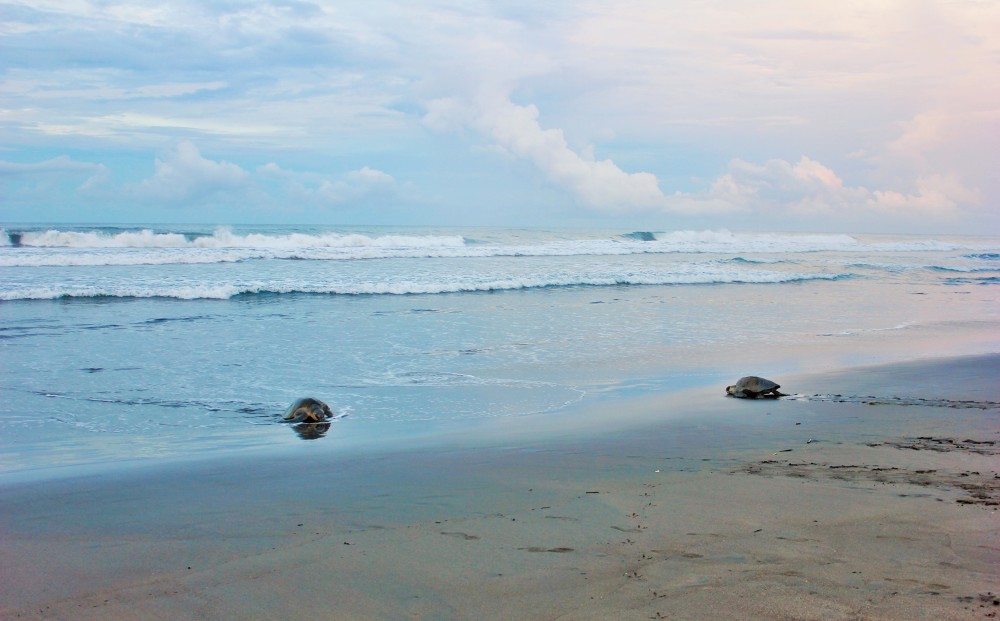
When Luke and I were there, we carefully walked behind the turtles as instructed. Just recently, I saw this shocking photo of a tourist ignorantly dancing in the sea, right in the turtles’ paths, come up on my Facebook news feed. When I commented on the post on our friends’ page, I couldn’t even believe that this was the same beach which Luke and I had visited.
Shocking images of tourists perturbing the natural cycle of egg laying of those endangered wild sea-turtles. This…
Posted by Barcelona Slow Travel on Monday, 21 September 2015
Just one year ago, we arrived in Ostional to a beach that was very nearly empty. On our first night and at dawn the following day, you could have counted to tourists on the beach on two hands. The number gradually increased, but it was absolutely nothing compared to the numbers that have been reported this year.
How has such a drastic change come about in just one year?
I don’t know why Ostional has seen such a huge influx of tourists over this short amount of time, but according to the Tico Times, the lack of rainfall in northern Costa Rica has meant the area has been more easily accessible to tourists this year. Other articles have claimed that tour companies transported tourists by the bus load. Unfortunately though, it seems that the local authorities were unable to handle this influx.
Ostional is one of a very small number of places that Olive Ridley turtles will nest. The turtles have nested here for millions of years and with very few other options, it’s hugely important that turtle nesting isn’t disturbed as this could have a terrible knock on effect to the Olive Ridley turtle population as a whole. The blatant disregard for the turtles’ natural cycle of egg laying, with tourists trying to get a quick selfie of themselves next to a sea turtle, shows the lack of understanding tourists have of the situation.
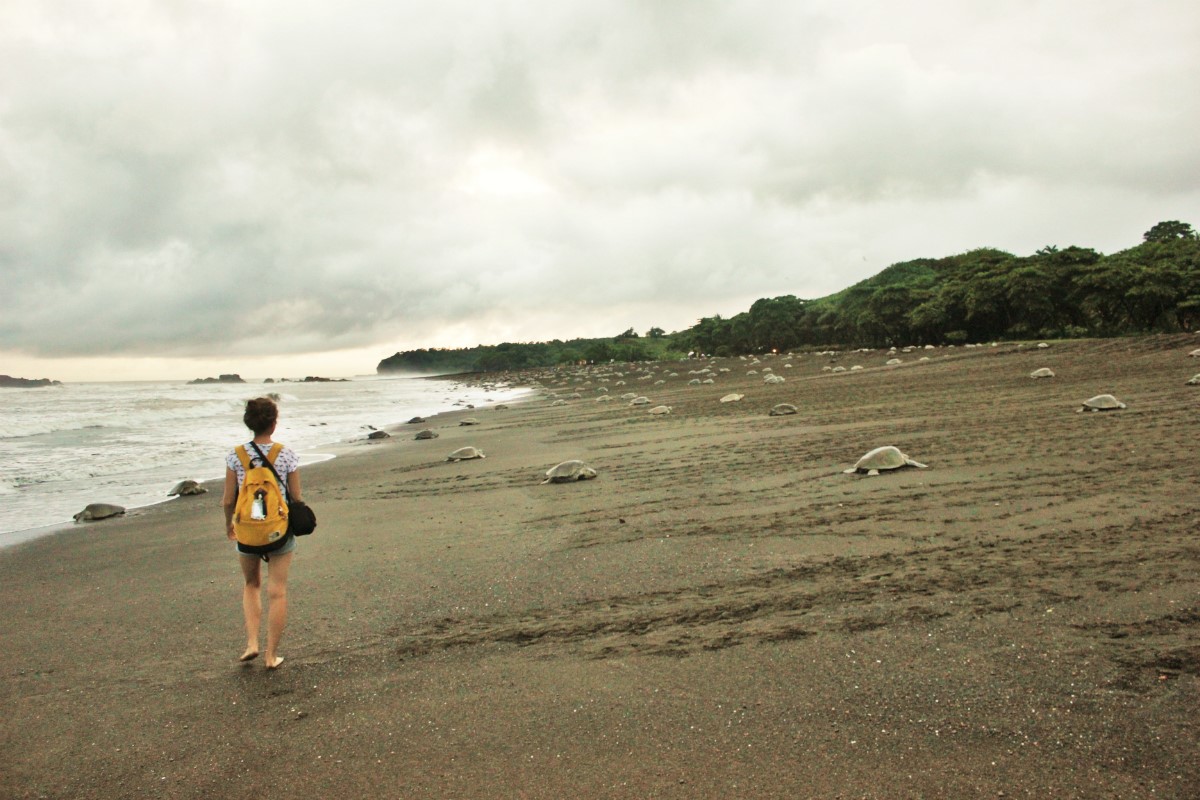
As a travel blogger who has visited Ostional during a turtle arribada and subsequently published an article about it online, I also have to ask myself whether me and other travel bloggers are partly responsible for this situation. Of course the turtle arribadas in Costa Rica are covered in Lonely Planet and other major travel guides, but with more and more people writing about it, there are more and more people who are wanting to go and experience the event for themselves.
On the other side of it, without the revenue that comes from tourism, it would be even more difficult to find to enough funds to cover paying for the already very stretched rangers, conserving the area and preventing the illegal poaching of eggs. However, this year many tourists entered the beach via unauthorised entrance points, which also means that they did not pay the fee to the rangers stationed along the beach and disregarded the regulations in place to avoid disturbing the turtle nesting.
Ostional needs a sustainable tourism solution. This is, of course, is easier said than done when funding and staff are limited. Putting stricter controls in place to limit the number of tourists entering the beach, enforcing the entry fee which contributes to protecting the area and the turtles, and having more rangers to act as guides and inform tourists about being respectful and responsible while watching the event to minimise any disruption to the turtles, are all necessary measures.
Sustainable tourism works on the idea that locals are incentivised to protect their natural resources and local wildlife too. In most cases, locals are then able to generate an income from the boost in tourism as a result of their conservation efforts or through running community based tourism projects.
In Ostional, however, the situation is different. The locals are legally allowed to harvest turtle eggs during the first 36 hours of an arribada to sell. The harvesting provides an income for the local community, as well as being a measure to prevent illegal poaching. In my last article, I wrote about the ethical dilemma over locals legally being able to do this. It’s not ideal, but having locals relying on the income generated from selling turtles eggs is also another way that tourists could be kept in check.
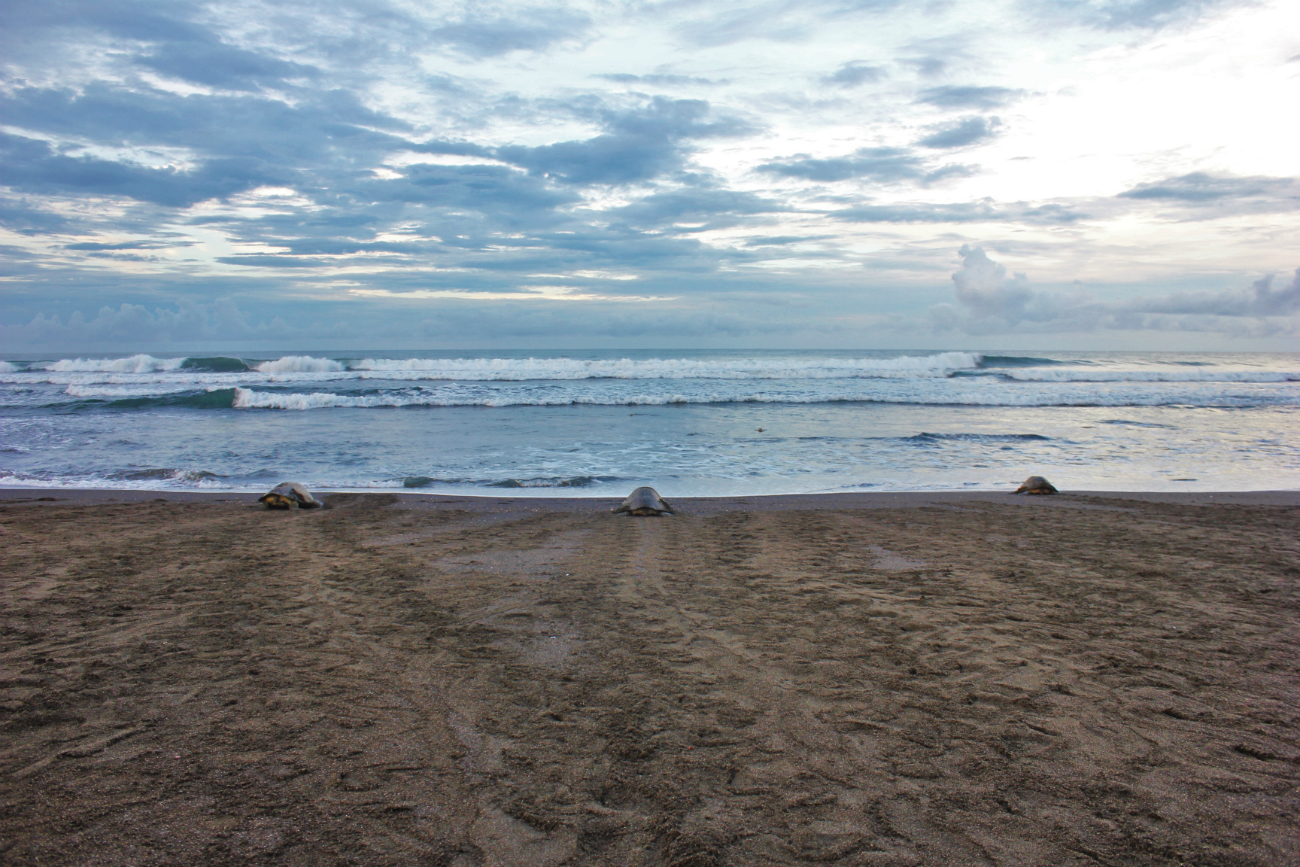
The Environment Ministry in Costa Rica posted their concerns about how tourism affected turtle nesting in Costa Rica this year directly to their Facebook page:
Secretaría de ambiente de SITRAMINAE solicitará investigar ante las autoridades competentes y SINAC las razones del…
Posted by SITRAMINAE-Sindicato de Trabajadores de MINAE on Tuesday, 8 September 2015
While it’s true that the authorities in charge of the area have to shoulder some of the responsibility for this situation, it is the tourists who are at fault here. I’ve felt sick when caught up in situations like these – including dolphin watching in Panama and elephant riding in Vietnam – and what always shocks me most is the sheer lack of understanding, compassion or concern shown by the people around me.
If this is what tourism is turning into, then we need to rethink tourism. If a travel experience is being had at the expense of an animal’s welfare, then it is not an experience worth having. It’s a sad situation, but it is always better to avoid an activity rather than partake in anything that could be harmful to an animal.
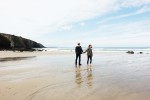

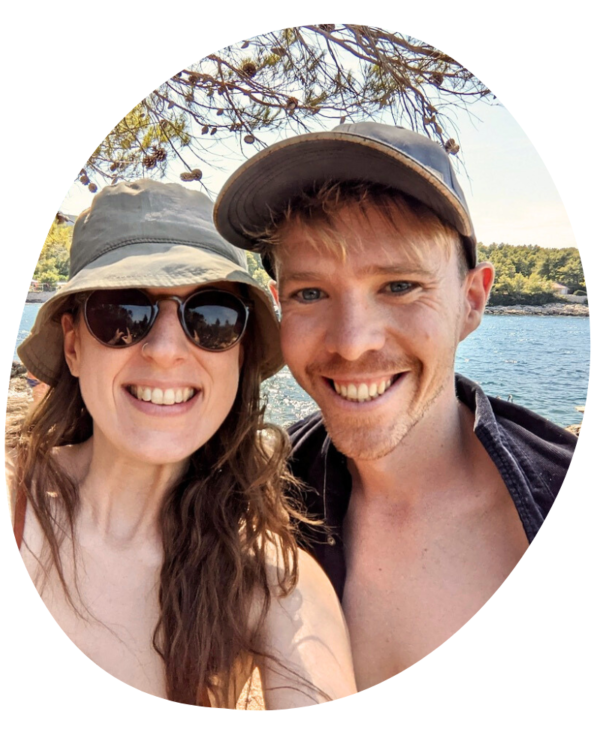


Katie Featherstone
I really couldn’t have put this better myself.
Sharon
You’ve brilliantly highlighted the fine balance that is needed in so many situations like this around the world.
I think, as travellers, we need to be proactive in researching the places that we are travelling to, making ourselves informed of other cultures, respectful of other environments and responsible for our actions towards man and beast.
Charlie on Travel
Thanks for commenting. Yes, definitely a proactive approach to researching and being informed is what’s needed!
Joseph
This was a really informative article. I can’t for the life of me understand how some people can behave so uncivilized when they are tourists, and even more so when it involves animals. Like, what are you doing dancing like that? What’s the point? To get a few laughs?? :(
Charlie on Travel
Glad you found it informative, Joseph. Yes, it’s a real shame and I sadly think that a lot of the time people just get ‘carried away’ and do these kinds of things unthinkingly, not realising the negative impacts that their actions will have. We just need to work on raising awareness and continuing to educate people about the consequences of their actions.
Josh
Awesome article! Ostional is a very interesting case, I actually wrote my dissertation on it and spent my placement year working on a marine reserve slightly further south. It seems hard to comprehend that legalising the egg trade may actually help the species.
Another famous arribada site further south in Costa Rica (Nancite) had huge arribada populations but the numbers are dropping hugely each year. The beach is a completely restricted zone and nature is left to run it’s course. I doubt there 100% no poaching but it’s definitely a lot less than other beaches in Costa Rica. Still the numbers are plummeting whilst Ostional still has healthy populations…
I’ll find your other article about the legal egg poaching as I’m interested to know your opinion!
Charlie Marchant
Hey Josh, thanks for reading and commenting. What a great topic for a dissertation – and very much one that needs research and awareness around it. What was your work experience placement like? What were the main tasks you did whilst on placement?
Do you know much about why numbers are plummeting in Nancite? I assume they’ve restricted the beach access as they feel it might be related to tourism and poaching – human interference.